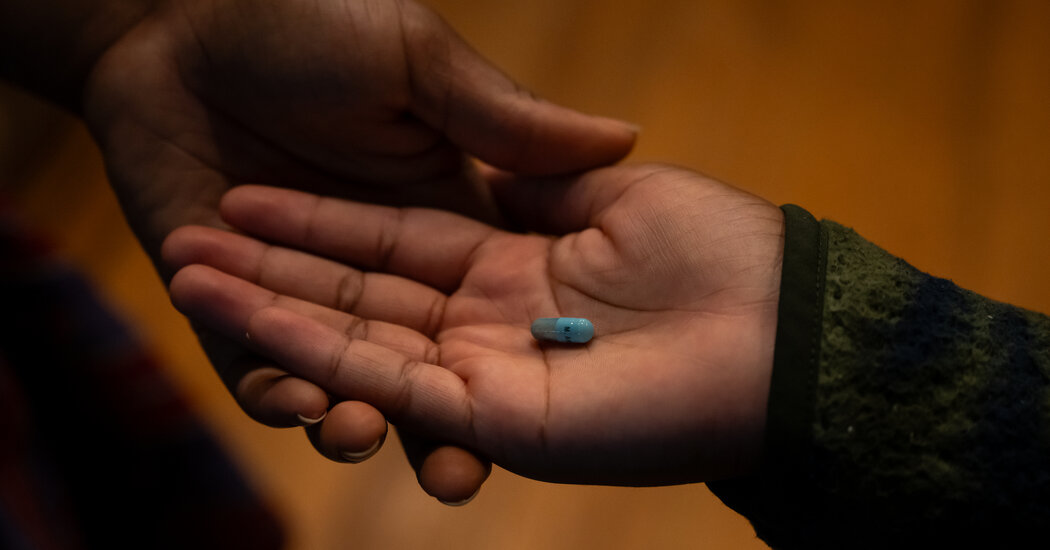Patients and caregivers have struggled for two years to find stimulant medications like Adderall, Vyvanse and Concerta to treat attention-deficit hyperactivity disorder, spending hours each month visiting pharmacies in search of their medications, forcing some to switch to different brands or formulations and others to go weeks without their medications.
This week, the Drug Enforcement Administration Announced The potential solution: The administration plans to increase the amount of lisdexamfetamine (Vyvanse) that U.S. manufacturers can produce this year by about 24% to meet U.S. and overseas demand.
Vyvanse is an amphetamine approved for use in children and adults with ADHD, and has become more commonly prescribed since generic versions were introduced last year. According to the DEA, the latest data shows that demand for the drug is growing worldwide. However, at present, All Manufacturers The generic drug Vyvanse listed on the Food and Drug Administration’s website is out of stock.
Many medical professionals who specialize in treating ADHD patients said the DEA’s decision is a positive development, but it’s unclear how much of an impact it will have on the shortage.
“Obviously, this doesn’t completely solve the problem,” says Ami Norris Brilliant, clinical director of the division of ADHD, learning and related disorders at the Mount Sinai School of Medicine in New York City, “but anything that helps increase the availability of medications is a good thing.”.”
This is not the first time the DEA has increased production quotas for ADHD drugs. Announced New limits for 2023 on methylphenidate, an ingredient in drugs such as Ritalin and Concerta, will increase the allocation by 27% for 2023. But the drug remains in short supply. Extended-release formulations.
The FDA first declared a nationwide shortage of Adderall in the fall of 2022. Other stimulants, such as Vyvanse, used to treat ADHD, quickly became harder to obtain as well.
Dr. Norris Brilliant said the shortage is “very problematic” for children and their families. She recalled that a 7-year-old girl attending her clinic this summer was unable to take her Vyvanse for three weeks, so her mother hired a caregiver to watch her every day at camp to make sure she didn’t do anything “impulsively risky.”
Adults with ADHD also suffer: Dr. David W. Goodman, an assistant professor of psychiatry and behavioral sciences at the Johns Hopkins University School of Medicine, said one of his patients at the hospital was unable to get his Vyvanse for nearly a month, and his performance was so bad that his boss and coworkers noticed.
The fact that the DEA is now increasing production limits for lisdexamfetamine is a “hopeful sign,” Dr. Goodman said.
The DEA made the decision after considering a letter from the FDA that argued that market data should be used to reassess the production cap for lisdexamfetamine.
Because stimulants used to treat ADHD are considered controlled substances with a high potential for abuse, the DEA places limits on how much of each drug each manufacturer can produce. Even if a drug company has the capacity to manufacture extra doses of a drug, they can’t make more unless the DEA increases the limits.
Pharmaceutical companies can ask the DEA for quota increases, but they aren’t always granted. On the other hand, pharmaceutical companies don’t always produce the full amount of the DEA’s quota. For example, in 2022, amphetamine drug manufacturers produced about 1 billion fewer doses than they were allowed, according to the agency. Government Records.
Of the 10 manufacturers that reported shortages of lisdexamfetamine, two — Hikmah Pharmaceuticals and Rose Pharmaceuticals — told The Times they would increase production once they received additional private allocations from the DEA. The other eight manufacturers did not respond to requests for comment.
Given that only a small portion of lisdexamfetamine’s additional production quota will be allocated to the U.S. market, it probably “won’t be a huge hit to supply,” said Dr. David Grunwald, a child and adolescent psychiatrist in Berkeley, Calif. Still, the increase seems like a move in the right direction, he said.
“We expect that they will plan similar increases for other stimulants,” Dr Grunwald added.
For many, medications are essential to daily life. But they’re not just tools to improve focus or grades, says Dr. Justin Larson, a child and adolescent psychiatrist at Sheppard Pratt, a behavioral health agency that runs special schools in Maryland. A lack of medication “can really impede kids’ progress.”
At Sheppard Pratt, children have sometimes forgotten to take their Vyvanse and unexpectedly run out of the building, causing panic for staff, she added.
Some caregivers are managing the shortage, but it’s hard to make ends meet. Families are “stressed and on the edge,” Dr. Larson said. “It’s really, really disruptive.”
